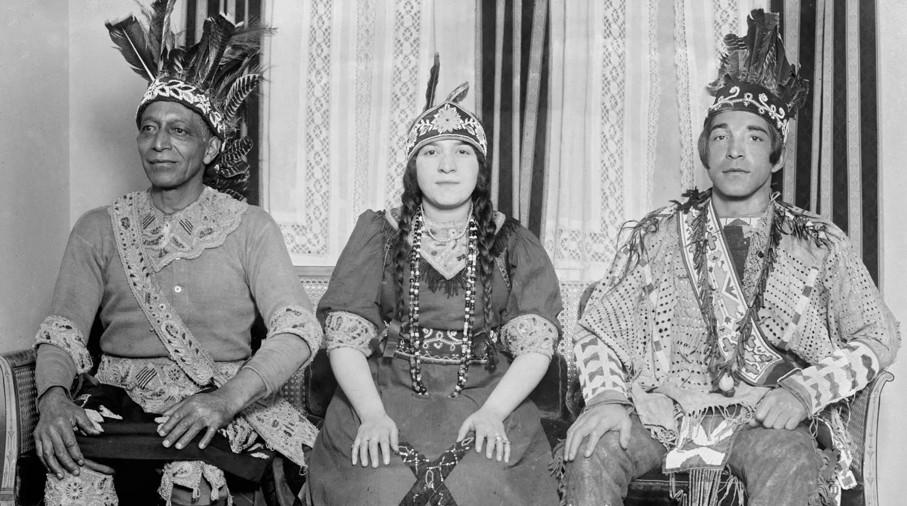
Countless rock bands have achieved immense popularity, filling arenas, selling countless records, and inspiring fervent devotion. Yet, only a select few – perhaps three, maybe five – transcend mere success to attain true legendary status. In today’s fragmented and digitally saturated landscape, it’s doubtful that future artists will reach such heights, not due to a lack of talent, but because societal divisions and the prevalence of streaming and AI-generated music present unprecedented challenges.
Nevertheless, here’s a consideration of those artists who achieved legendary status:
Elvis Presley:
It’s impossible to discuss rock and roll royalty without starting with Elvis. He ignited a global phenomenon, introducing rock and roll to a wider audience and forever altering popular culture. He remains, and will always be, the undisputed King of Rock ‘n’ Roll, an icon whose name resonates even after he has left the building. The enduring impact of Elvis is evident in the estimated 35,000 tribute acts worldwide, a testament to his influence even decades after his passing.
The Beatles:
Securing the number two spot are The Beatles, another band that conquered the world and became a cultural phenomenon. Their unparalleled musical evolution, transitioning from a pop band to a source of pure musical genius, and the pervasive influence they exerted on rock and pop music solidify their unique position. Despite their relatively short tenure together (1960-1970), every album and single they released is considered a masterpiece. No other rock band has established a more significant and enduring legacy. What other band remains so relevant and widely discussed 55 years after disbanding?
The Rolling Stones:
Completing the top three are The Rolling Stones. Their popularity rivaled that of The Beatles, and their longevity far exceeds them, making them indispensable to any discussion of rock’n’roll.
While their musical genius and originality may not have reached the same heights as The Beatles, The Rolling Stones played a crucial role as their contemporaries, serving as their antithesis. They were the yang to The Beatles’ yin.
In contrast to The Beatles, with their clean-cut image and coordinated bows, The Stones cultivated a rebellious, bad-boy persona (a carefully constructed image by their manager, Andrew Loog Oldham). As The Beatles ventured into pop, The Stones kept the raw, visceral energy of rock alive.
Although The Stones briefly experimented with psychedelia (Their Satanic Majesty’s Request, remains a respectable effort), they wisely returned to their roots. Since then, they have remained true gods of rock’n’roll and continue to inspire, tour, and sell out stadiums around the world. What other band has maintained a 65-year career, still filling stadiums with devoted fans?
Elvis Presley, The Beatles, and The Rolling Stones reign supreme as the undisputed monarchs of rock, leaving an indelible mark on both music and broader culture. Beyond this iconic trio, only a select few bands even come close to achieving such legendary status. Two that immediately spring to mind are:
The Who
Pete Townshend’s 1969 rock opera, Tommy, secures The Who’s place in musical history. A landmark achievement, it stands as one of only two genuinely exceptional rock operas ever conceived (alongside Jesus Christ Superstar). A testament to musical brilliance, featuring a captivating narrative, compelling characters, and profound, enduring themes, Tommy is a work of pure genius, matched by the band’s electrifying performance and remains as relevant today as it was in 1969.
The Who were a wild, down and dirty rock band rivaling The Rolling Stones, but with more originality and more musical evolution as the years passed. (And The Who were more authentically rough working-class rowdies.)
The Who are also the only band ever formed around a lead drummer and a rhythm guitarist. (I’ve been trying to make this quip a thing!) In addition, John Entwistle is sometimes credited with playing the electric bass as a lead instrument.
The Who were enormously popular, but not as popular as The Stones. The band had their farewell tour in 1982, but reformed for tours or special events every five or ten years. They just played two nights at The Royal Albert Hall in March 2025 to benefit the Teenage Cancer Trust. Of course, only vocalist Roger Daltrey and guitarist Pete Townhsend remain of the original lineup. (Ringo Star’s son Zak Starkey has been The Who’s drummer for the last 29 years.)
Led Zeppelin
Led Zeppelin spearheaded the third wave of rock, following Elvis Presley’s initial surge and the subsequent British Invasion led by The Beatles, The Rolling Stones, and The Who. Their immense success, innovative sound, exceptional musical talent, and lasting impact place them among the greatest rock bands ever. While incredibly popular, their fame didn’t quite reach the same level of universal recognition as The Beatles; for example, your grandparents would have likely recognized Elvis and the British bands on television but would have been unfamiliar with Led Zeppelin, partly due to the band’s deliberate strategy of limiting media appearances.
Buddy Holly:
Buddy Holly possessed an impressive and innovative body of work with immense influence. His tragic death in a plane crash at 22 cut short his potential to reach the same level of fame as The Beatles.
Chuck Berry:
Chuck Berry, a highly influential figure with a strong musical legacy and captivating stage presence, is revered by musicians and his songs are covered by countless bands. Despite this, his appeal to the general public is less pronounced, and his reputation suggests a difficult personality, possibly stemming from his solitary nature. While a rock legend, Berry may not qualify as one of the all-time greatest rock artists.
The Kinks:
The Kinks were a top band of the British Invasion, but their overall musical output and influence weren’t extensive enough to place them in the same category as The Beatles.
Bob Dylan:
Bob Dylan is undoubtedly a monumental figure in rock, having written numerous classic songs and exerted a significant influence on both culture and music. However, his discography is inconsistent, and his live performances are reportedly underwhelming. Furthermore, he has a reputation for being difficult. Although a rock superstar, he might not be considered one of the absolute greatest.
James Brown:
James Brown was a massive and influential artist, but he’s more closely associated with soul music than rock.
Stevie Wonder:
Stevie Wonder, starting as a young soul prodigy, rose to become a pop/crossover sensation. A gifted harmonica and keyboard player, as well as a creative and influential songwriter, producer, and performer, he enjoys widespread admiration. However, he didn’t achieve the same level of iconic status as Elvis or The Beatles.
Jimi Hendrix:
Jimi Hendrix revolutionized the electric guitar solo in rock music. He created iconic albums, had numerous hits, and was a legendary performer. His life was tragically cut short at 27 due to drug use. A legendary rock artist, but not as culturally significant as Elvis and The Beatles.
Elton John:
Elton John is immensely popular and talented, but his cultural and musical influence is not as groundbreaking as some other artists.
The Grateful Dead:
It pains me to say this, as they are my favorite band. The Grateful Dead held the title of highest-grossing touring band for a significant number of years. However, their appeal was not universally broad, they received minimal radio airplay, and their music can be considered an acquired taste by some. Therefore, I cannot place them in the same echelon as The Beatles or The Rolling Stones. They are like ripples on still waters, impactful but perhaps less pervasive.
Michael Jackson:
Perhaps Michael Jackson does deserve to be considered among the very best. He was undoubtedly a remarkably talented performer and songwriter, and his popularity spanned the globe. Yet, I was never particularly drawn to his music myself, so I hesitate to judge his impact definitively enough to include him in my highest tier.






